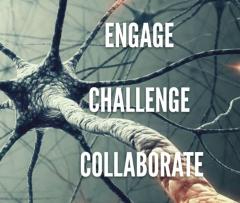While there is still much to learn about motor neurone disease (MND), understanding of this complex condition is continually improving and there are many researchers using a variety of techniques to develop potential new treatments.
There is a worldwide research effort underway to develop new and effective treatments for MND and there are many clinical trials globally searching for a cure. The only drug currently licenced in Australia is riluzole, which slows down the progression of MND, but there are many other drugs or trials that you may have heard mentioned in the media.
NurOwn – Stem cell trials
Stem cells are cells that have not yet become specialised to perform a specific function. They are also unique as they can transform into several different cell types, e.g. blood, muscle or nerve cells. Stem cells have gained a lot of media attention because of the possibility that they could eventually be used as a therapy to repair or replace damaged cells. This includes scientists that are using stem cells to generate motor neurones in the laboratory in order to learn more about MND.
NurOwn is a stem cell study which uses bone marrow-derived stem cells and combines them with a trial treatment before transplanting them back into the same patient. It was hoped these treated stem cells would then produce biomolecules to help protect and promote growth of nerve cells (neurones).
This trial was developed by Brainstorm-Cell Therapeutics and they released their Phase 3 trial data ahead of the International Symposium in December. Unfortunately, their results did not meet statistical significance in any of the reported data, and so there is no conclusive evidence at this time to suggest that NurOwn provides benefit to people with MND. You can read the press release from Brainstorm here, a corresponding article by ALS News today here and MND Australia’s statement on the results here.
* It is important to note that stem cell treatments offered by private clinics at considerable cost have not undergone proper clinical trials to prove their efficacy and may carry the risk of serious side effects. If you are considering pursuing stem cell treatment, please discuss it with your neurologist first. Find out more at the Stem Cells Australia website and on their stem cells and MND page.
Edaravone (Radicava) - Effectiveness for ALS Not Established
The drug edaravone was developed by Mitsubishi Tanabe (MT) Pharma Corporation in Japan and is a free radical scavenger that targets oxidative stress. Edaravone is administered through an intravenous infusion and the dosing regimen and method of administration can be very taxing for patients. After a series of Phase 3 trials in Japan in 2015, regulatory bodies approved edaravone to treat people with ALS/MND in Japan and South Korea. In May 2017 the Federal Drugs Administration in the US also approved the use of Radicava™ for ALS patients. Currently it is not yet approved for use in Australia under our country's regulatory approval process for drugs (via the Therapeutic Goods Administration) and is also not approved for use in the UK or EU.
A recent review of edaravone found the medication generally well tolerated in real-life use by patients in six countries, matching reports from clinical trials. But its effectiveness at delaying disease progression was less evident, with findings of greatest efficacy coming from Asia, and so the researchers indicated that more studies are needed elsewhere. Read the full ALS News today article here.
Research and clinical trials in Australia
MND Research Australia (MNDRA) promotes, supports and funds the best MND research within Australia and is the research arm of MND Australia. Clinical trials test new treatments and interventions in people to find out if they are safe and/or effective. To find the latest information on clinical trials and research in Australia, visit MND Australia here. To read the latest edition of the MNDRA newsletter Advance, head to our blog post here.
The 31st International Symposium on ALS/MND was held virtually on 9-11 December 2020, with researchers, scientists, doctors and health professionals from all around the world attending. Many of our staff at MND NSW also attended the virtual symposium and you can see the highlights and find further information on the presentations here.
Alternative therapies
When someone is diagnosed with a condition such as MND, they often turn to the Internet for answers. There they can find many alternative therapies and off-label treatments, most of which are offered in “trials” with a large up-front cost. This article from the ALS Untangled team compiles a list of the most common ‘red flags’ their researchers have come across when reviewing new potential treatments or therapies. Read more here.

